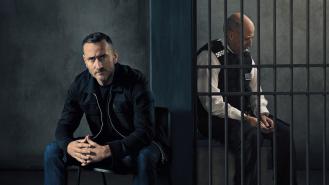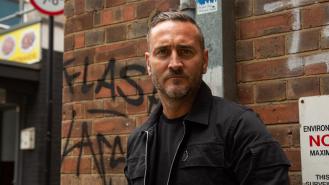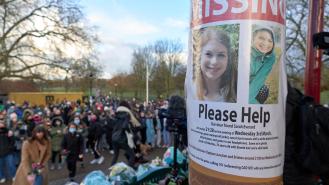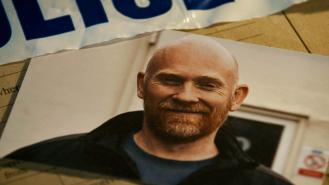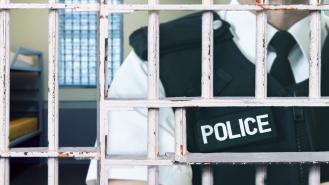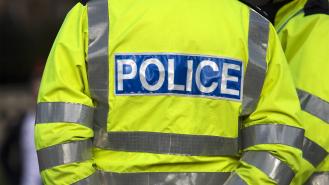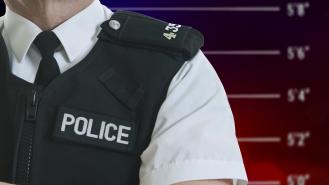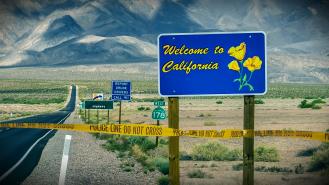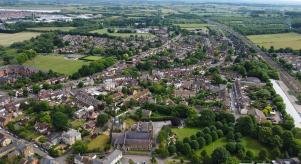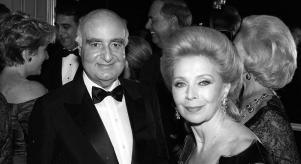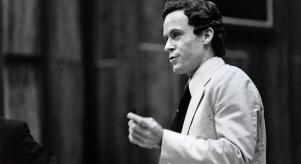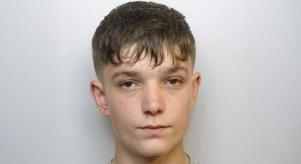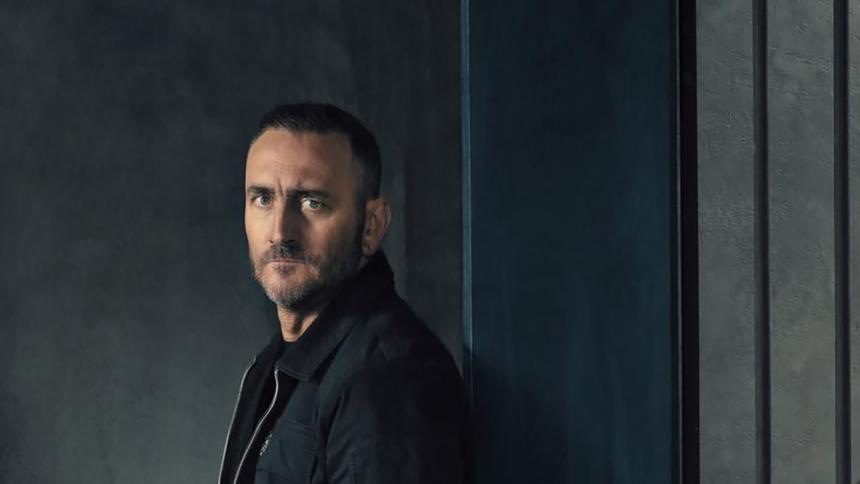
'It's a show that I'm passionate about': Will Mellor on 'Cops Who Kill'
Cops Who Kill with Will Mellor lifts the lid on eight cases of murder and betrayal by police officers in Britain and around the world. In each episode, TV personality and actor Will Mellor is joined by experts, including forensic psychologist Serena Simmons, to try to unravel how and why a police officer switches from law enforcer to lawbreaker, how they were finally brought to justice, and the horrendous consequences for all concerned.
Crime+Investigation spoke to Will Mellor and Serena Simmons about the series and found out what it was like getting immersed in such shocking crimes.
Crime+Investigation: Can you describe the premise of the show in your own words?
Will Mellor: Cops Who Kill is about police officers - the people sworn to protect us - committing the worst possible crimes. We dive into the mindset of these officers and how and why we think they've committed these crimes. We look to see if there were any red flags and whether these murders could have been stopped. We also ask what we can learn from these cases moving forward, and how can we prevent things like this from happening again.
Serena Simmons: I was asked to give some of my expertise around the psychology behind the 'why'. Often, the first question I'm asked is, 'Why would a person kill someone, particularly if it's their partner or children?' and that's what I was able to do. I spent time on each of the cases, profiling each of the offenders, and looking at their deeper psychological underpinnings.
Why did you want to get involved in the show?
Will: Truth be told, it's just something I would like to watch but I'd be shouting at the TV, saying 'why didn't you ask this or that?'. I got the chance to ask questions and be honest about what I felt walking in the footsteps of people that sadly lost their lives. It's a show that I'm passionate about. I hope we can make a difference by bringing the public and the police back together because it is vitally important.
What was it like getting immersed in the cases?
Will: It was important that I could be myself and be the voice of the viewer. It hopefully brings the audience in with me. If I'm passionate about something, I immerse myself in it. I wanted to know about everything, and I wanted to ask questions. The reactions were genuine. Some of these cases still stay with me. I imagine what the victims were going through.
Serena: I can vouch for that. We filmed together for a couple of days and in between, Will was asking me lots of questions about the cases. Will was genuinely diving into it. He truly represented the public in terms of the questions that I get from other people. That was completely genuine on his part. It was lovely to be able to keep chatting once the cameras weren't rolling and keep the conversation going as well.
What case were you most interested in and why?
Will: They're all individual cases, they're all different in their way but they're all so compelling. Some of the murders seem a bit more spur of the moment and some were premeditated. But it's the reaction after they've committed the murder - how cold and calculating they were - that shocked me.
The Sarah Everard case will stay with me. Wayne Couzens should not have been a police officer. There were so many red flags. The fact that she would have realised something was wrong when she was handcuffed in the back of his car, is terrifying. She couldn't defend herself. I stood right where she was when she was taken. That was chilling for me.
Serena: I would again echo what Will has said. The Couzens case is so relevant and so contemporary that it does stand out as a core case.
We've tackled it in a very different way from how it would be tackled in the news, for example. We're going so much deeper in terms of who he was and his history. There's some amazing footage of him just when he was caught. We've looked at that and deconstructed what was going on. That stands out for me, and I hope it will answer a lot of questions for the public on that one as well.
How did watching the footage of Wayne Couzens being interviewed make you feel?
Will: I loved watching him squirm, sat there in handcuffs, panicking. He's just an animal, a monster. And the arrogance! He didn't think they would look for him. He hadn't planned what he would say when they knocked on his door. You can see when I'm watching him, that I hate the man.
It was horrendous but he could have easily got away with this if it hadn't been for the amazing work of the police. So, we need to highlight that as well. I just wish Couzens had been flagged before.
Would Wayne Couzens have killed again if he wasn't caught?
Serena: I discussed that at length in the programme. For a deeper insight, people will have to watch. I do believe in my personal academic opinion that the police caught a potential serial offender, given the planning that went into the crime, how he committed it, and certain key elements which we go into the programme.
As Will said the police did a fantastic job of apprehending him and, in my view, stopping him in his tracks from committing any further crimes.
Did the police featured in the show, use their training to try and cover up their crimes?
Will: What was interesting was how bad they were at it. Steve Jones planned to kill his wife to make it look like a road traffic accident. It was premeditated but he made so many mistakes. That happened a lot. It shows you that yes, they are police, but they're human beings as well.
There's also this arrogance, especially with Steve Jones. He didn't think they would even question whether it was a road traffic accident. He was relying on bad policing but there was one good officer that thought 'there's something wrong here'.
Is there a everyday trait that links these cops who kill?
Serena: That's certainly something that the programme focuses on. What Will said is one of the most interesting things and was in the programme. Lots of planning went into some of the crimes but there seemed to be sloppiness or laziness once the crime had been committed. That goes back to the arrogance of being in the position that they were in: 'I won't be questioned. I'm a police officer. I'm an upstanding member of society.
Can you talk about some of the non-UK cases featured in the series?
What Bobby Coutts Jr [a US Police officer from Ohio] did stayed with me because there was a child involved. He killed his pregnant partner, in front of their child and left this toddler for 24 hours, knowing he was alone.
I can't get my head around what goes on in some people's minds. These are police officers. You always think they're putting themselves in front of criminals to protect us. They're the heroes and that's what's shocking, what people are capable of.
Cops Who Kill is available to stream now on Crime+Investigation.
